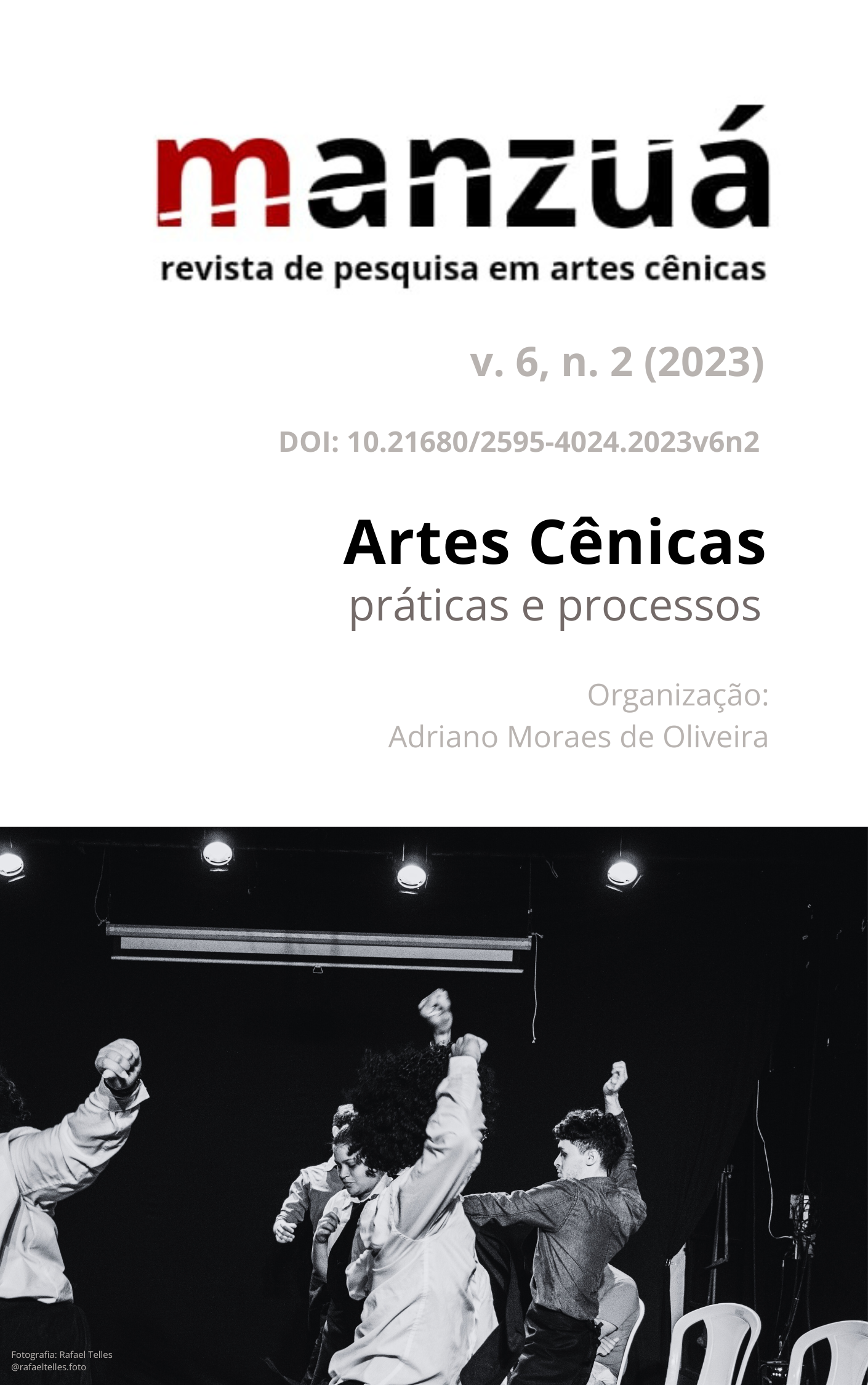CAPTAINED BY ARCHETYPES IN THE PERFORMING ARTS
DOI:
https://doi.org/10.21680/2595-4024.2023v6n2ID31357Abstract
The Swiss psychiatrist Carl Gustav Jung (1875-1961) dedicated himself to the study of self-understanding throughout his life and, while he carried out his journeys, he came across countless contents that, according to him, pointed out paths on the horizon to get to part of the complexes that exist in our personal/collective unconscious. Integrated to Jungian analytical psychology, the author of the article camped in bibliographies that dealt with the theme, and thus had as its objective to present three archetypes, namely: anima, animus and shadow; and they were used as guiding threads for body investigations carried out in the area of Performing Arts, through artistic immersion, reaching performance results in the close relationship with her feminine self, anima.
Downloads
Downloads
Published
How to Cite
Issue
Section
License
Copyright (c) 2023 João Vítor Ferreira Nunes

This work is licensed under a Creative Commons Attribution-NonCommercial-ShareAlike 4.0 International License.
Autores que publicam nesta revista concordam com os seguintes termos:
Autores mantém os direitos autorais e concedem à revista o direito de primeira publicação, com o trabalho simultaneamente licenciado sob a Licença Creative Commons Attribution que permite o compartilhamento do trabalho com reconhecimento da autoria e publicação inicial nesta revista.
Autores têm autorização para assumir contratos adicionais separadamente, para distribuição não-exclusiva da versão do trabalho publicada nesta revista (ex.: publicar em repositório institucional ou como capítulo de livro), com reconhecimento de autoria e publicação inicial nesta revista.
Autores têm permissão e são estimulados a publicar e distribuir seu trabalho online (ex.: em repositórios institucionais ou na sua página pessoal) a qualquer ponto antes ou durante o processo editorial, já que isso pode gerar alterações produtivas, bem como aumentar o impacto e a citação do trabalho publicado (Veja O Efeito do Acesso Livre).


 Português (Brasil)
Português (Brasil) English
English Español (España)
Español (España) Français (Canada)
Français (Canada)